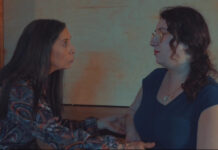By Edmond Y. Azadian
In most civilized countries, independent and co-equal branches of the government balance centers of power and curb the dictatorial impulses of any party in the above equation. However, a fourth force complements the equation: a healthy and responsible opposition.
While among the governing forces checks and balances are achieved through the proper exercise of each branch’s duties — by the executive, the legislative and the judiciary — the opposition, in turn, balances all of the above.
Opposition parties in Europe and in North America act as shadow governments and they are prepared to take over the helm should any unforeseen development take place or just in the normal course, if the ruling party loses popular support.
But, in developing countries, the opposition is considered the enemy, most of the time, and the opposition’s programs and ideas are ignored, just to deny them credibility.







